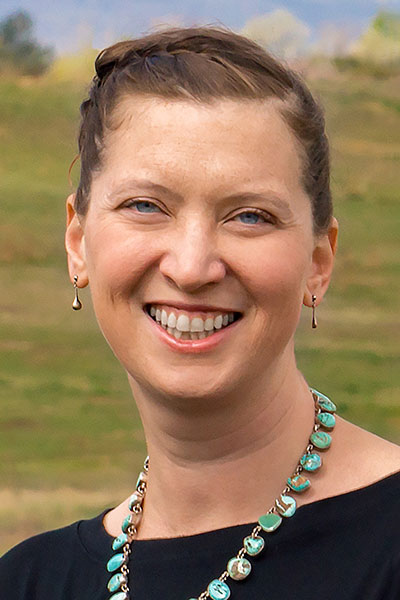
The education session Reproductive Health: Meet Women’s Needs features three speakers who not only work with patients with rheumatic disease but are also mothers who live with a rheumatic disease.
The session’s first showing will take place on Sunday, Nov. 8, from 5 – 6 p.m. EST and feature a live question-and-answer session. Registered attendees can watch a replay through Wednesday, March 11.
Courtney Wells, PhD, assistant professor, University of Wisconsin-River Falls, will present results from analyses she and Kristine Carandang, PhD, conducted about the physical and psychosocial challenges women with rheumatic diseases face related to family planning, pregnancy, and early parenting. Their research looks into the patient experience and patient engagement in the healthcare process. Many of the patients discussed having challenging interactions with rheumatologists and wish they could get additional support about reproductive health, more than just talking about the physical effects of going off medications during pregnancy.
“The big message is that rheumatologists or other providers need to ask those questions about the bigger life picture and need to take those other life aspects into consideration when collaborating on a treatment plan. A lot of the decisions that women are making have more to do with their job, or with their spouse or their partner, or the family planning issues, and not so much the physical parts of it,” Dr. Wells said.

Mariah Leach, BS, started the private Facebook support group Mamas Facing Forward. Having three children born after her RA diagnosis, Leach’s experiences have ranged from an unmedicated pregnancy and failed breastfeeding caused by postpartum RA flare to a fully medicated pregnancy and successful breastfeeding. Today, Mamas Facing Forward brings about 2,000 mothers and mothers-to-be worldwide who live with chronic illnesses together.
While Leach has seen improvement regarding support for pregnant women and mothers with rheumatic conditions, including data on medication use during pregnancy in the 2020 ACR Guideline for the Management of Reproductive Health in Rheumatic and Musculoskeletal Diseases, she continues to get inquiries from women around the world who lack the needed support and information from their care providers. In fact, three-quarters of respondents to a survey done by Mamas Facing Forward expressed frustration about how their needs weren’t being met. Leach said:
“Women living with chronic illnesses who are or want to become mothers have unique population needs and individual needs in their own contexts. Participants in our Mamas Facing Forward survey reported that the Facebook group provided the emotional support of a community, access to useful information, and immediate insider perspective, and empowered some of them to take action in their real lives.”

Cheryl Crow, OT, adjunct faculty member of the Occupational Therapy Assistant program at Lake Washington Institute of Technology and host of the Arthritis Life podcast, said that too often, women with rheumatic diseases struggle because they lack the tools and resources that can help them adjust to both the physical and psychological demands of parenthood. According to Crow,
“Women of child-bearing age who have rheumatic diseases are expected to seamlessly merge their new role as a parent with their previous role as a self-manager of their chronic illness. This can be a grueling process that requires time, energy and mental capacity, and trial and error. Occupational therapists, as experts in helping clients succeed with meaningful daily tasks, are well-suited to provide the needed resources and support and promote a smoother transition.”
Crow said that those who watch the session may be surprised to learn about how effective occupational therapy can address the physical, psychological, and social needs. They can help parents and caretakers find the best daily living aids such as car seat-unbuckling aids, magnetic baby-proofing options, and clothing fasteners.
Attendees are also encouraged to explore the new ACR Reproductive Health Initiative, designed to address the unmet reproductive health needs of patients.


